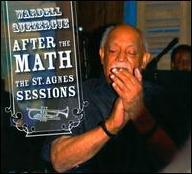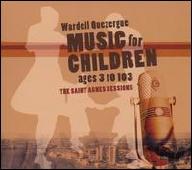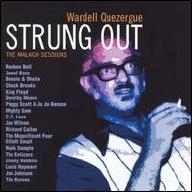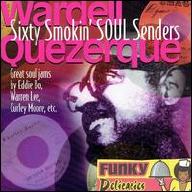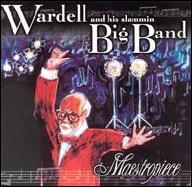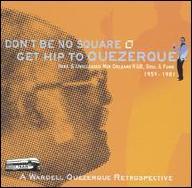After growing up in a 7th Ward home filled with musicians, he began playing trumpet at professional gigs in the mid-'40s and emerged as a bandleader in the mid-'50s with his Royal Dukes of Rhythm. (Some 50 years went by before he was finally presented with an opportunity to make recordings in front of his own aggregation entitled Wardell His Slammin' Big Band.) Much of his career was spent making arrangements for others and he was known for getting results. The best example is his association with Malaco, a local studio and label that was a few cents short of going broke before Quezergue became involved. He borrowed a school bus in order to transport all the needed participants to a marathon recording session that resulted in two blockbuster hits, the demanding and relaxing Groove Me and the swaggering, self-important Mr. Big Stuff. The next chapter is one typical of the record business. The Stax and Atlantic labels, constantly hyped as being crucial in the history of soul music, rejected these records as being uncommercial. Malaco had to put out King Floyd's Groove Me on its own Chimneyville label, but this was not a release that went up in smoke. Instead, Atlantic was forced to come begging when the record took off in one region of the country after another.
As a result of this and subsequent hits produced by Quezergue, Malaco's studio, production, and session musicians became the "in" things. The Pointer Sisters, Rufus Thomas, and Paul Simon all worked in the facility, the latter artist recording tunes for his popular 1973 album There Goes Rhymin' Simon. The following year, though, Quezergue was temporarily seen as having "lost it" and Malaco finally went under. For the label it was the grand finale indeed, but for the producer it was only a few years before he was once again working in the studios with big names such as Willie Nelson, the Supremes, B.B. King, and the Staple Singers. Productions from the contemporary New Orleans perspective include the Orchid in the Storm album by Aaron Neville. He also was behind two excellent big-band albums by Clarence Gatemouth Brown. Quezergue also created an extended composition entitled A Creole Mass. A much-anticipated anthology of some of his work, Strung Out, was finally issued in 2006 by Grapevine Records. Quezergue had, by that time, been wiped out financially by the effects of Hurricane Katrina, although benefit concerts led by Dr. John and others helped him stabilize. He was also the subject of a tribute show in 2009 at the Lincoln Center in New York, featuring appearances from Dr. John, Robert Parker, Jean Knight, the Dixie Cups, Zigaboo Modeliste, and others. He died in Metairie, Louisiana in September 2011 at the age of 81, a victim of congestive heart failure. ~ Eugene Chadbourne, Rovi


